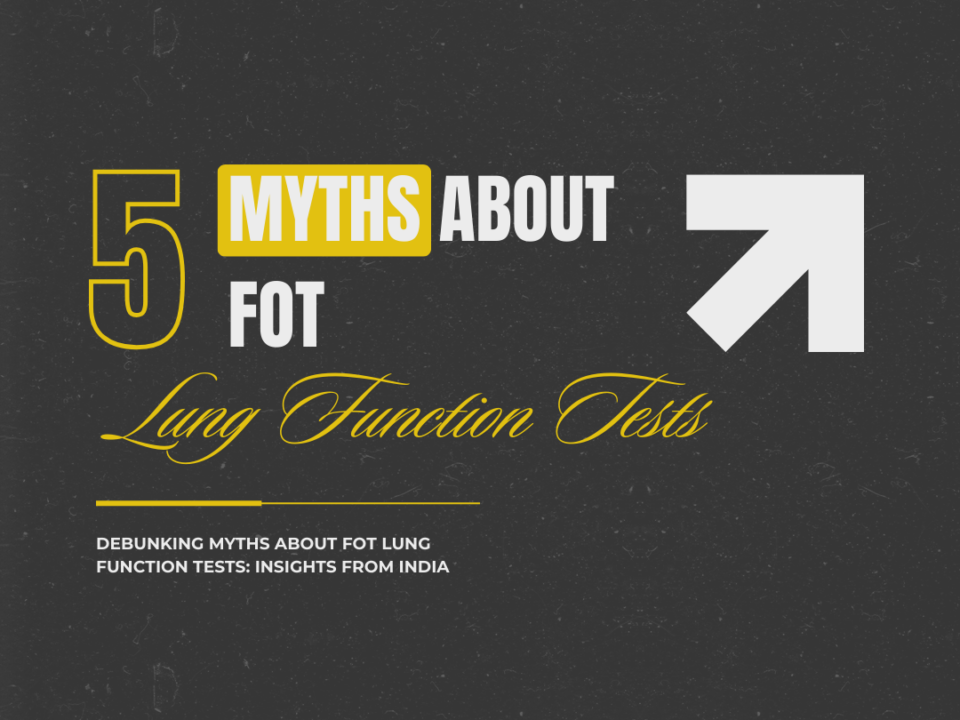
Why Quitting Smoking is Crucial for COPD Patients
November 11, 2024
The Top 5 Vitamins and Supplements for Healthy Lungs
November 11, 2024
Living with Chronic Obstructive Pulmonary Disease (COPD) can make breathing seem like an endless struggle. Taking prescribed drugs, abstaining from smoking, and carefully listening to medical advice are common ways to manage this illness. Nutrition, however, is a component of COPD management that is frequently disregarded. Many people are not aware that the foods they eat can have a big effect on their breathing.
Lung function can be impacted by incorporating a well-balanced diet, particularly when it is customized to meet the specific requirements of those with COPD. This article will examine the connection between breathing and food and offer suggestions for improving respiratory oscillometry health through dietary changes.
How Does Food Affect Breathing?
The relationship between eating and breathing is based on metabolism. All of the bodily chemical and physical transformations, such as the transformation of food into fuel and oxygen into carbon dioxide, are referred to as metabolism. Since people with COPD already have trouble getting rid of carbon dioxide (CO2) from their bodies, controlling their food intake is even more important.
As different macronutrients—fats, proteins, and carbohydrates—metabolize, different amounts of CO2 are released. For example, carbohydrates produce more CO2 than proteins or lipids. Foods that produce greater levels of CO2, like those high in carbs, should be avoided since people with COPD have trouble exhaling CO2. On the other hand, lipids are a better energy source for those with COPD since they generate the least amount of CO2 during metabolism.
The Low-Carb Diet for COPD Management
People with COPD may benefit from a diet high in fat and low in carbohydrates, according to research. This is justified by the fact that fats reduce CO2 output more than carbohydrates do. People with COPD may breathe more comfortably if their body produces less CO2, which will lessen the strain on their lungs.
Key Research Findings
1985 Study on Diet and Lung Function: This study was one of the first to examine the relationship between diet and lung function in individuals with COPD. The lung function of COPD patients on high-, moderate-, and low-carb diets was compared by the researchers. The group following the low-carb diet saw a 22% improvement in lung function after two weeks. The results indicated that people with COPD may benefit greatly from a low-carb, high-fat diet.
2003 Study on High-Fat Supplements: In a different 2003 study, researchers looked at how consuming high-fat, low-carb supplement beverages affected individuals with COPD. One set of participants followed a standard high-carb diet, whereas the other group added two to three cans of high-fat, low-carb nutritional drinks each evening to their diet. After three weeks, the group consuming the supplements showed marked improvement in lung function, reinforcing the idea that high-fat, low-carb diets could aid in managing COPD symptoms.
Although both studies highlighted the potential benefits of a low-carb diet, more research is needed to understand the long-term impact and safety in COPD patients fully.
The Role of the Ketogenic Diet in COPD
The "keto" diet, also known as the ketogenic diet, is an extremely low-carb, high-fat eating plan that is intended to induce ketosis in the body. When the body begins converting fat into ketones, which it uses as fuel rather than glucose, ketosis is reached. The ketogenic diet was first created in the 1920s to treat epilepsy, but it has since been researched for its uses in cancer and disorders linked to inflammation.
COPD as an Inflammatory Condition
A chronic inflammatory disease that affects the lungs is called COPD. According to new research, the ketogenic diet may have anti-inflammatory qualities that could aid COPD patients with their lung inflammation. Although research has indicated potential, the ketogenic diet is still relatively new as a COPD treatment. To ascertain whether the diet is safe and beneficial for long-term use in individuals with COPD, experts warn that more research is required.
The ketogenic diet and other low-carb diets may reduce the chance of developing COPD, according to some research. Additionally, by reducing inflammation and CO2 production, a ketogenic diet may assist people with COPD improve their symptoms.
Consulting a Registered Dietitian for COPD Management
The use of low-carb diets to treat COPD is becoming more popular, but it's important to proceed cautiously while making dietary adjustments. People with COPD can customize their diet to fit their unique needs by speaking with a nutritionist or registered dietitian (RDN). In addition to ensuring that dietary requirements are satisfied, an RDN can help limit foods that might make breathing problems worse.
It's critical to keep a balance of vital nutrients when on a low-carb diet. Merely cutting back on carbohydrates is insufficient; the diet also needs to include the proteins, vitamins, and minerals the body needs for general health and well-being.
Practical Dietary Tips for People with COPD

For those considering dietary changes to manage COPD, here are some practical tips to get started:
- Reduce carbohydrate intake: Focus on limiting refined carbohydrates like white bread, pasta, and sugary snacks. Opt for complex carbohydrates such as whole grains in moderation, as they are digested more slowly and produce less CO2.
- Incorporate Healthy Fats: Include sources of healthy fats like avocados, nuts, seeds, olive oil, and fatty fish. These foods are not only high in beneficial fats but also provide essential nutrients like omega-3 fatty acids, which have anti-inflammatory properties.
- Lean Proteins: Choose lean protein sources like chicken, turkey, and legumes. These provide the necessary protein for muscle function without producing excess CO2.
- Stay Hydrated: Adequate hydration helps thin mucus, making it easier for individuals with COPD to clear their airways. Drink plenty of water throughout the day.
- Small, Frequent Meals: Eating smaller meals more frequently throughout the day can prevent the sensation of bloating, which can make breathing more difficult for people with COPD.
- Supplements: Consider discussing nutritional supplements with your healthcare provider. In some cases, high-fat, low-carb nutritional drinks may be recommended to ensure you are getting enough calories and nutrients without increasing CO2 production.
Conclusion
Nutrition is an essential part of COPD care. By being aware of how dietary decisions affect lung function and general health, people with COPD can take proactive measures like PFT lung tests to enhance their quality of life. When combined with an emphasis on vital nutrients, a low-carb diet can have major advantages. You can create a customized dietary plan that supports your path to improved breathing and general well-being by speaking with a qualified dietitian.




